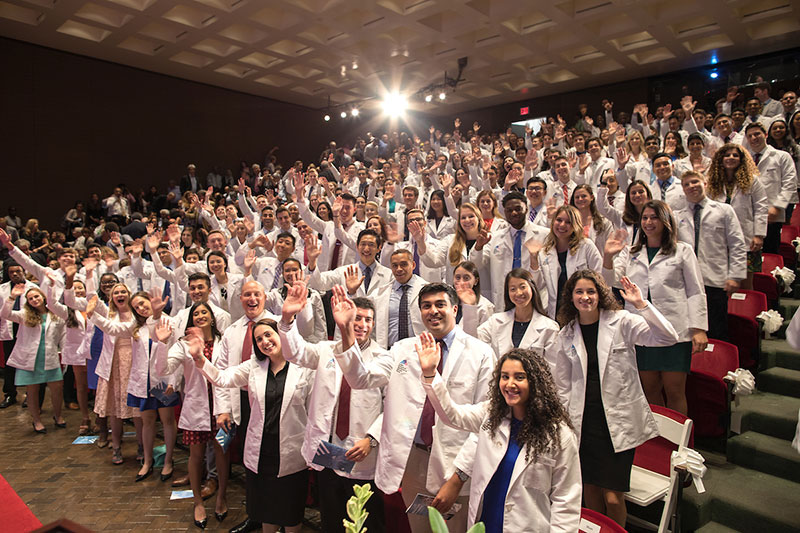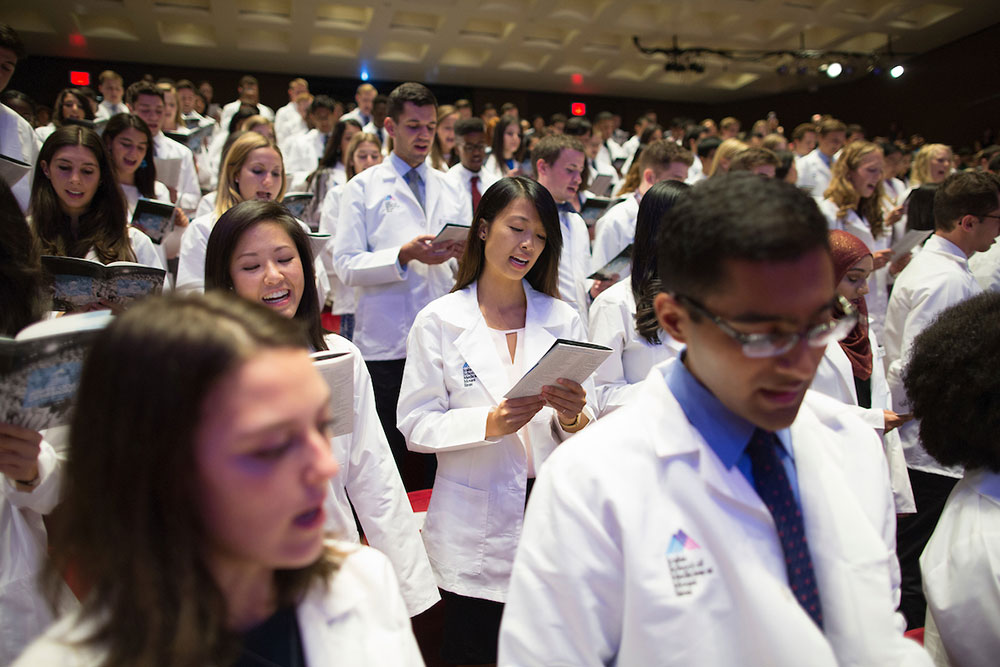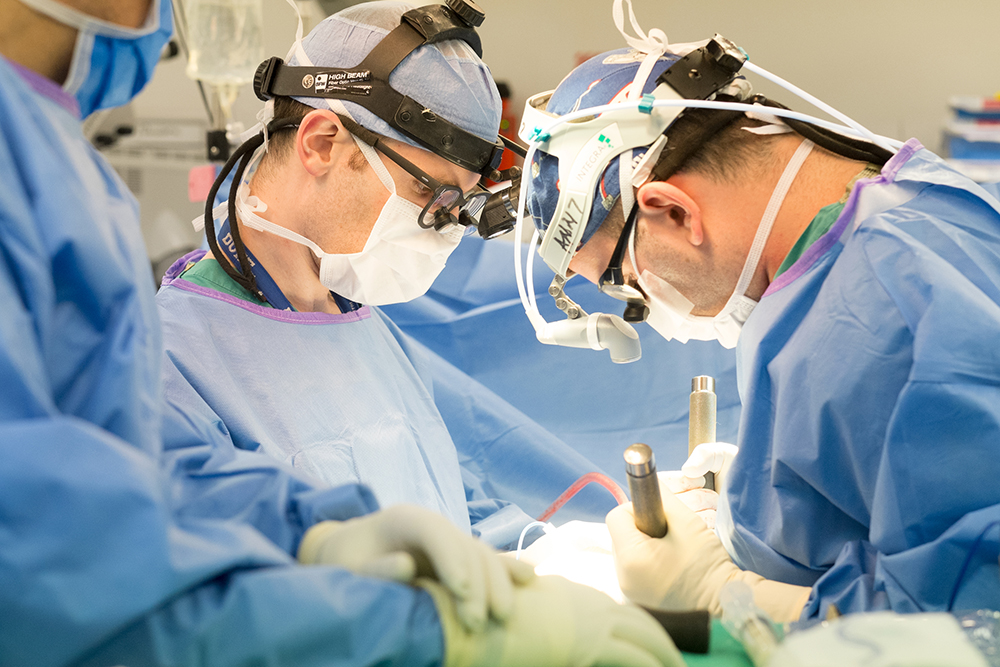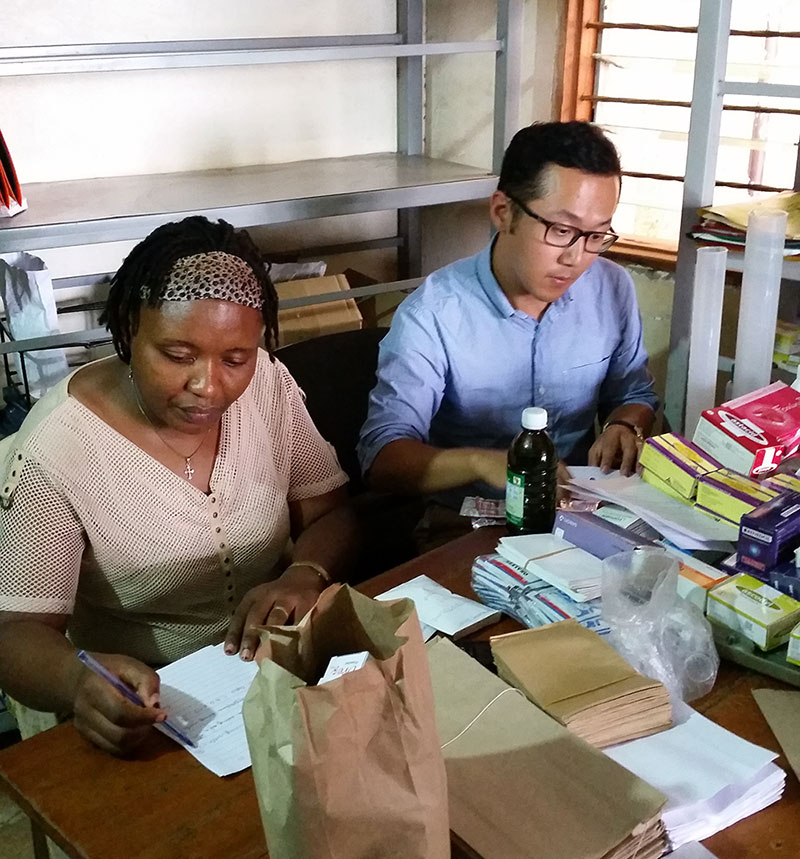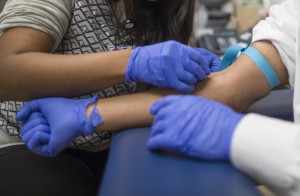 My preceptor went ahead to double check whether the patient was willing to speak with me. I heard a woman’s voice and tried to imagine what she looked like-was that a Caribbean accent I heard? My preceptor drew back the curtain and introduced me to the patient. Then he turned and strolled out of the room to leave me alone with Mrs. Washington.*
My preceptor went ahead to double check whether the patient was willing to speak with me. I heard a woman’s voice and tried to imagine what she looked like-was that a Caribbean accent I heard? My preceptor drew back the curtain and introduced me to the patient. Then he turned and strolled out of the room to leave me alone with Mrs. Washington.*
Mrs. Washington was a 46-year-old woman admitted to the hospital for shortness of breath. I was visiting her as part of an assignment for my Art and Science of Medicine class. I had one hour to take a full history, with special attention to the history of present illness. I would later use this information to practice composing a medical write-up.
This was the first time in my life as a medical student that I was left alone with a patient. I took a deep breath and began, “So, what brought you to the hospital?” Mrs. Washington mentioned her shortness of breath, and then began to tell me the story of her kidney transplantation. I took note and tried to steer the conversation back on track. Mrs. Washington quickly answered my question, telling me about her productive cough and brown, bloody sputum. Then she proceeded to discuss her kidney transplantation. Why fight it, I thought. I allowed the conversation to naturally unfold.
Many years ago, after suffering kidney failure and a long, painful and exhausting hemodialysis experience, Mrs. Washington finally found a match. She underwent kidney transplantation. Mrs. Washington had even successfully lost over 100 lbs. in an effort to improve her health prior to surgery. She was grateful for the opportunity she was given and felt as though she really had been given a new lease on life.
Then, one year ago, Mrs. Washington lost her job. As a result, she lost her health insurance. This consequently forced her to try to live without her necessary immunosuppressant drugs. Before long, she was (as she put it) “knocking on death’s door.”
With no other option, Mrs. Washington visited the emergency room, hoping to receive immunosuppressant drugs. She literally begged for help. Yet without insurance and without an immediately emergent situation, Mrs. Washington was turned away. Without her necessary medications, she began to reject the kidney.
Mrs. Washington eventually rejected the kidney and her only option was to go back on hemodialysis. She had to undergo numerous procedures as fistulas formed around each catheter that was implanted into her body, preventing blood from flowing and being filtered of toxins. She even underwent dialysis through her abdomen, but consequently suffered from a severe bout of peritonitis and almost died. Things could not get any worse. As Mrs. Washington’s story came to a close, she began to cry. Through sobs and tears she said, “All they care about is money. Our healthcare system is all about money.”
That day we eventually did get to discuss Mrs. Washington’s shortness of breath. I did eventually finish my medical write-up. More importantly, it was clear that while I alone cannot change the system, as a physician I can help those the system failed to help, or at least lend them an ear and support.
*Patient’s name and other identifying details have been changed in accordance with HIPAA consent guidelines.





